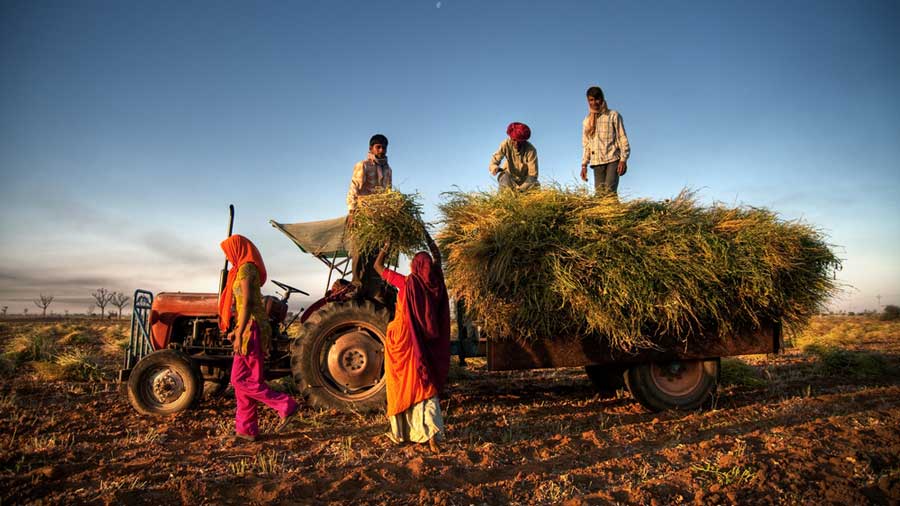A quiet, reverse transformation is happening in the countryside, and it is disconcerting. This sowing season, growing numbers of farmers are falling back on their bullocks as fuel prices are piercing the roof. The tractor, the symbol of modern farming, is becoming a luxury in the literal sense. The conventional ploughing equipment tied to bullocks costs only a trifle compared to the rates of tractors.
This is happening in relatively better off states where tractors had largely replaced bullocks over the last two or three decades. But in places where, and for those people for whom, draught power is not an option, rising fuel prices have increased production costs on tractor-hiring. The demand for bullocks has thus gone up.
Those who eke out a living using a tractor — for sowing, mulching and harvesting — are struggling as small peasants can no longer afford to hire tractors for farm operations. On an average, across India, the cost of hiring a tractor has gone up by 20-30 per cent — roughly Rs 300 an hour from Rs 700 to Rs 1,000 an hour. For an acre, for instance, paddy farmers in central India are paying Rs 3,000 more than they did last year for sowing operations. It is the same for wheat, cotton or soybean.
This has serious consequences for actual farm incomes. They would drop significantly. In one paddy-dominated village in rural Nagpur, this writer found a new barter system evolving this year. Tractor owners are saying: “Pay fuel costs now to hire the machine. Pay the driver’s wages in the form of rice at the time of harvest. But don’t make us keep our tractors parked. Give us work.”
Fallow land
That is just one problem. Rural India, battered badly by the second wave of Covid-19 in the summer, is mired in other mounting worries too, apart from the looming spectre of a third wave. Take crop credit outlay: it is yet to pick up in most states this season. A sluggish credit disbursal affects sowing operations. Informal credit is hard to come by, as farm-input dealers — people who sell their inputs to farmers on credit — and other private lenders are not offering credit lines to the peasantry. The reason: the possibility of a third wave and a liquidity crunch. No one wants to take the risk.
Last year, the agriculture sector supported the migrants who went back home in the middle of the first, hurriedly implemented lockdown. This year, though, a combination of factors is hurting them immensely. Take another way in which they are suffering. There seems to be a drop in land-leasing. How much? We shall know later this year. Millions of marginal and small farmers who, apart from tilling their small plots also cultivate the farm land on lease, are either reluctant or have no liquidity to lease land this year. Indications, therefore, are that India might see a sharp drop in the cultivated land area this year as the otherwise leased-lands may stay fallow.
More problems
Then, there are problems with regard to payments for the crops sold last year. Deferred and delayed payments meant that small and mostly sustenance farmers had no money in hand, and the second wave of the coronavirus crippled the markets and normal life ahead of the kharif sowings.
Another problem: Maharashtra, indeed much of India, is seeing a decline in crop insurance figures. The deadline to buy the fasal bima (crop insurance) for the ongoing kharif season has passed, but farmers are not opting for it because, one, doing so has not helped in the past and, two, nationalized and cooperative banks are slow in disbursing crop loans, with which the crop insurance comes compulsorily tagged in many states. That the online process remains cumbersome has not helped either, in spite of tall claims to the contrary.











